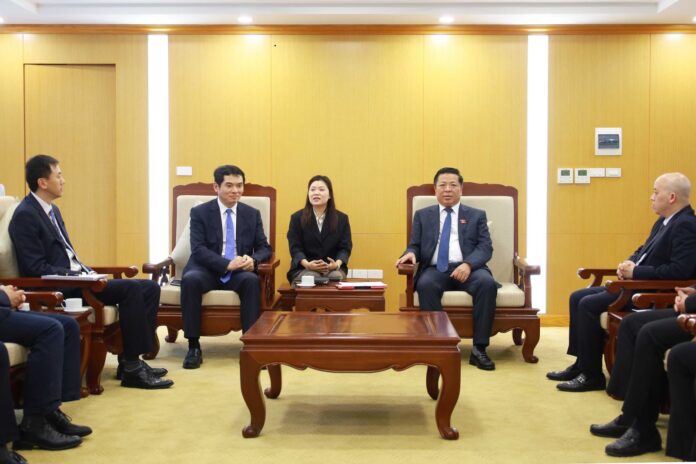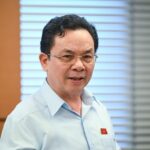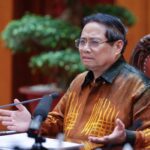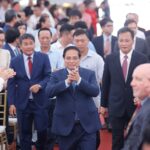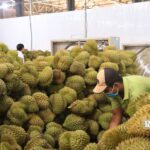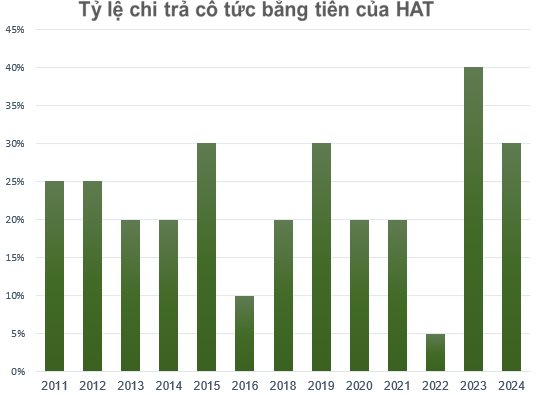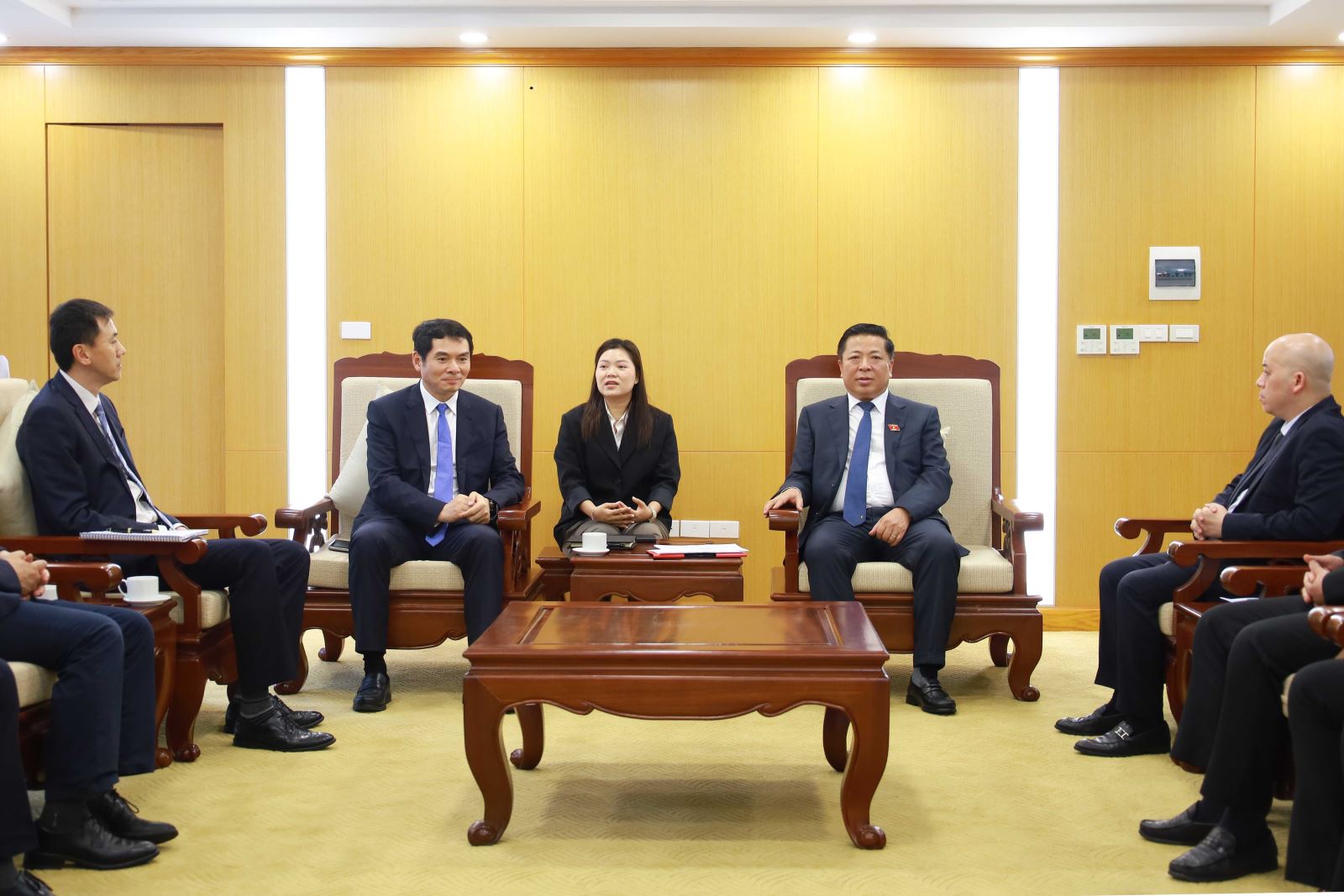
Minister Tran Hong Minh meets with MCC’s Vice President. Photo: Ministry of Construction
On May 20, Minister of Construction Tran Hong Minh held a working session with Mr. Zhu Guang Xia, Vice President of China Metallurgical Group Corporation (MCC).
During the meeting, the leadership of MCC expressed their desire to expand cooperation with Vietnam in the fields of urban infrastructure development, transportation infrastructure (including highways, railways, ports, and airports), energy bases, and irrigation works.
The MCC leaders also proposed advanced financial-technological models to contribute to the construction and development of national infrastructure in Vietnam.
According to Mr. Zhu Guang Xia, MCC is a state-owned enterprise and one of the top 10 largest enterprises in China today. It has established over 130 overseas branches in 50 countries (regions) worldwide, including Vietnam.
He respectfully invited the Minister to visit MCC to gain a fuller understanding of the corporation’s scale and development potential, as well as to explore new cooperation opportunities between enterprises of both sides.
Minister Tran Hong Minh appreciated the level of development in China’s metallurgical industry in general and that of MCC in particular.
He affirmed that the Ministry of Construction of Vietnam always attaches great importance to and fosters cooperative relations with international partners, including those from China.
The Minister confirmed that within the scope of its functions and tasks, the Ministry of Construction is ready to support and facilitate Chinese enterprises, including MCC, in developing urban infrastructure, transportation infrastructure, energy bases, and irrigation works in Vietnam.
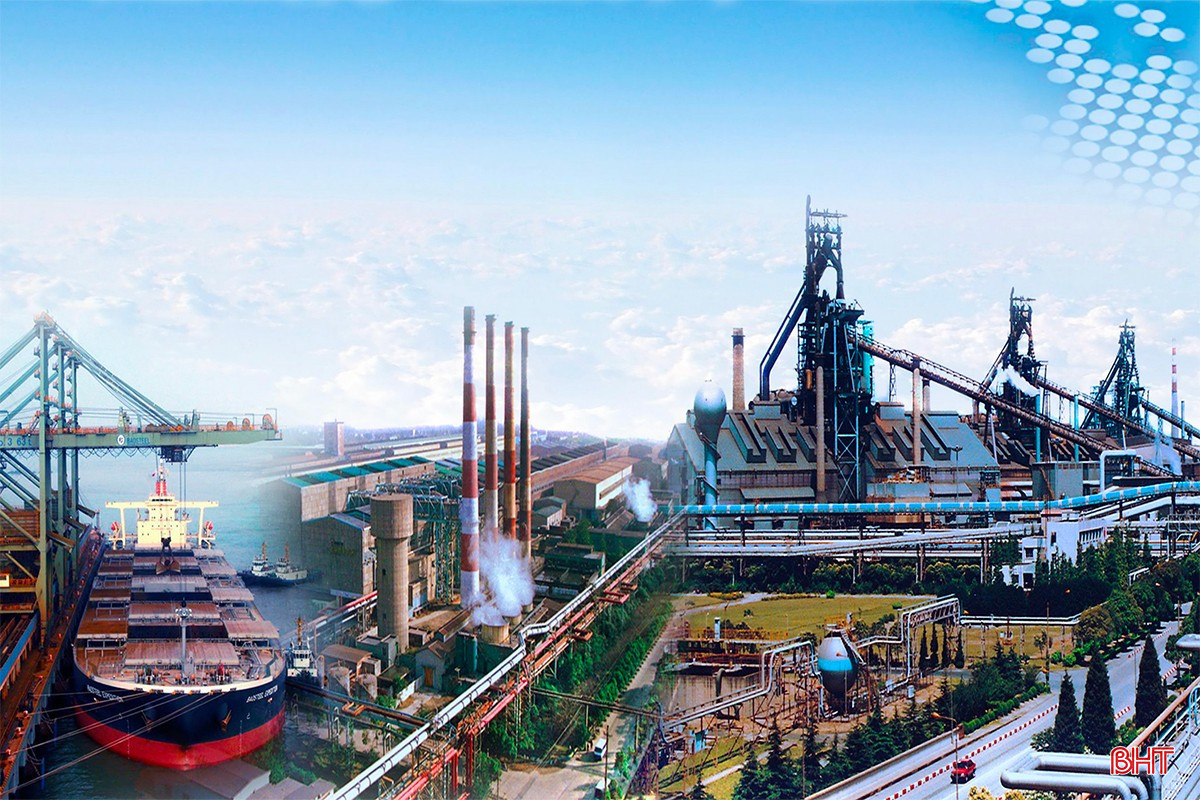
MCC’s subsidiaries have participated in many projects in Vietnam. Photo: Ha Tinh Newspaper
MCC is a large-scale state-owned enterprise under the management of the State-owned Assets Supervision and Administration Commission of the State Council of China.
Last year, MCC achieved a revenue of 80 billion USD, ranking among the Top 500 enterprises in the world and second in the global industrial construction field.
In 2011, Hoa Phat Steel Joint Stock Company and Shanghai Shisanye Construction Co., Ltd. (a subsidiary of MCC) signed an EP general contracting contract to implement items such as a sintering plant, blast furnace, oxygen furnace, and continuous casting machine, with an annual capacity of 700,000 square tons of billet. The project has contributed to increasing Hoa Phat’s total construction steel production capacity to 1.2 million tons/year.
In the Hoa Phat Dung Quat 2 Coking Plant project, MCC Southern (a subsidiary of MCC) was responsible for planning and designing the steel plant, including both phases of the project.
In 2016, MCC Vietnam Operation and Business Co., Ltd. was established, headquartered in Ky Anh, Ha Tinh. It is a subsidiary of MCC Baosteel Technical Services Co., Ltd., which is directly under China Minmetals and MCC Group Corporation.
Currently, MCC Vietnam has 937 Vietnamese employees and 146 Chinese employees.
Over the years, MCC has completed the construction of many projects in Vietnam, such as the 1,200-ton China Steel cold-rolled steel mill and paper mill projects in Binh Duong and Bac Ninh.
MCC Vietnam is the largest contractor for Formosa Ha Tinh, with more than 1,100 employees, responsible for equipment maintenance, repair, and production support for the entire technology line of the steel mill.
“A Revolutionary Proposal: Private Sector Takes the Lead on High-Speed Rail”
“The National Assembly delegates emphasized that the North-South high-speed railway is a key project and a backbone infrastructure of the nation. Despite private sector involvement and investment, the project must adhere to the state’s requirements and regulations.”
Prime Minister Attends Groundbreaking Ceremony for Trump International Hung Yen Project
On May 21, Prime Minister Pham Minh Chinh attended the groundbreaking ceremony for the Khoai Chau Complex Urban, Eco-Tourism, and Golf Course project (Trump International Hung Yen) in Hung Yen province.
Why Do Businesses Claiming to Be Drug-Free Still Test Positive for Saffron in Their Durian Fruits?
The discovery of high levels of cadmium in durian is primarily due to soil pollution, prolonged use of fertilizers and pesticides in cultivation. Additionally, the use of color enhancers by some businesses during the preliminary processing stage further exacerbates the issue, resulting in the presence of Sudan Yellow, a harmful dye, in the fruit.

